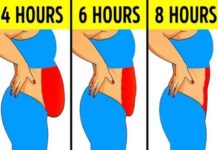What is Covid Variant ‘Omicron’? Covid Variant South Africa Explained:
- South Africa ‘punished’ for detecting Omicron Covid variant: Government.
- New COVID variant Omicron triggers a global alarm, market sell-off.
- WHO names the new Covid variant ‘omicron’.
Nearly two years into the Covid-19 pandemic, the world is racing to contain a new coronavirus variant potentially more dangerous than the one that has fuelled constant waves of infection on nearly every continent.
The World Health Organisation (WHO) on Friday classified the B.1.1.529 variant detected in South Africa as a SARS-CoV-2 “variant of concern” saying it may spread more quickly than other forms.
A World Health Organisation (WHO) panel named the variant “Omicron” and classified it as a highly transmissible virus of concern, the same category that includes the predominant Delta variant, which is still a scourge driving higher cases of sickness and death in Europe and parts of the United States.
Omicron’s actual risks are not understood. But early evidence suggests it carries an increased risk of reinfection compared with other highly transmissible variants, the WHO said. That means people who contracted Covid-19 and recovered could be subject to catching it again. It could take weeks to know if current vaccines are less effective against it.
Omicron Variant – #covid – omicron delta kappa – NEW COVID Variant Worse Than Delta?
Britain, EU countries and some others introduced their travel restrictions on Friday, some within hours of learning of the variant.
Preliminary evidence suggested there is an increased risk of reinfection and there had been a “detrimental change in Covid-19 epidemiology” it said in a statement after a closed meeting of independent experts who reviewed the data.
“It seems to spread rapidly,” US President Joe Biden said on Friday of the new variant, only a day after celebrating the resumption of Thanksgiving gatherings for millions of American families and the sense that normal life was coming back at least for the vaccinated. In announcing new travel restrictions, he told reporters, “I’ve decided that we’re going to be cautious.”
Infections in South Africa had risen steeply in recent weeks, coinciding with detection of the variant now Omicron, WHO said.
“This variant has a large number of mutations, some of which are concerning. Preliminary evidence suggests an increased risk of reinfection with this variant, as compared to other (variants of concern), it said.
Omicron is the fifth variant to carry such a designation.
“This variant has been detected at faster rates than previous surges in infection, suggesting that this variant may have a growth advantage,” the WHO said.
Current PCR tests continue to successfully detect the variant, it said.
Earlier, the WHO cautioned countries against hastily imposing travel restrictions linked to the variant of Covid-19, saying they should take a “risk-based and scientific approach.”
Here’s why the new omicron variant is causing such concern 👇 pic.twitter.com/cqrRmAYytJ
— DW News (@dwnews) November 27, 2021
Global authorities reacted with alarm to the new variant detected in South Africa, with the EU and Britain among those tightening border controls as scientists sought to find out if the variation was vaccine-resistant.
“At this point, implementing travel measures is being cautioned against,” WHO spokesperson Christian Lindmeier told a UN briefing in Geneva. “The WHO recommends that countries continue to apply a risk-based and scientific approach when implementing travel measures.”
People should continue to wear masks whenever possible, avoid large gatherings, ventilate rooms and maintain hand hygiene, Lindmeier added.
There was no immediate indication whether the variant causes a more severe disease.
As with other variants, some infected people display no symptoms, South African experts said.
The WHO panel drew from the Greek alphabet in naming the variant Omicron, as it has done with earlier, major variants of the virus.
Medical experts, including the WHO, warned against any overreaction before the variant was thoroughly studied.
But a jittery world feared the worst after the tenacious virus triggered a pandemic that has killed more than five million people around the globe.
“We must move quickly and at the earliest possible moment,” British Health Secretary Sajid Javid told lawmakers.
It would take several weeks to determine the variant’s transmissibility and the effectiveness of vaccines and therapeutics against it, he said, noting that 100 sequences of the variant have been reported so far.
Fears of more pandemic-induced economic turmoil caused stocks to tumble in Asia, Europe and the United States.
“The last thing we need is to bring in a new variant that will cause even more problems,” German Health Minister Jens Spahn said. Members of the 27-nation EU have experienced a massive spike in cases recently.
Bidden called anew for unvaccinated Americans to get their widely available doses and for governments to waive intellectual property protections for Covid-19 vaccines so they can be more rapidly manufactured around the world.
Mike Ryan, WHO’s emergency director, praised South African public health institutions for picking up the signal of the new variant.
But he warned that while some countries had systems in place to do this, the situation elsewhere was often unclear.
“So it’s really important that there are no knee-jerk responses here. Especially with relation to South Africa,” he said. “Because we’ve seen in the past, the minute that there is any mention of any kind of variation, then everyone is closing borders and restricting travel.”
Fewer than 6pc of people in Africa have been fully immunised against Covid-19, and millions of health workers and vulnerable populations have yet to receive a single dose. Those conditions can speed up the spread of the virus, offering more opportunities for it to evolve into a dangerous variant.
The Africa Centres for Disease Control and Prevention discouraged any travel bans on countries that reported the new variant. It said past experience shows that such travel bans have “not yielded a meaningful outcome”.
Meanwhile Graeme Codrington South African speaker, Expert on the Future of Work at TomorrowToday Global said,

Omicron has now been seen in travellers to Belgium, Hong Kong and Israel, as well as in southern Africa.
In response to the variant’s discovery in southern Africa, the United States, Canada, Russia and a host of other countries joined the European Union (EU) in restricting travel for visitors from that region, where the variant brought on a fresh surge of infections.
The US restrictions will apply to visitors from South Africa, Botswana, Zimbabwe, Namibia, Lesotho, Eswatini, Mozambique, and Malawi. The White House suggested the restrictions will mirror an earlier pandemic policy that banned the entry of any foreigners who had travelled over the previous two weeks in the designated regions.
The UK banned flights from South Africa and five other southern African countries and announced that anyone who had recently arrived from those countries would be asked to take a coronavirus test.
Canada banned the entry of all foreigners who have travelled to southern Africa in the last two weeks.
The Japanese government announced that Japanese nationals travelling from Eswatini, Zimbabwe, Namibia, Botswana, South Africa and Lesotho will have to quarantine at government-dedicated accommodations for 10 days and take three Covid-19 tests during that time. Japan has not yet opened up to foreign nationals. Russia announced travel restrictions effective from Sunday.
Even though some of the genetic changes appear worrisome, it was unclear how much of a public health threat it posed. Some previous variants, like the Beta variant, initially concerned scientists but did not spread very far.
See Also: Watch Anna_Rose_Xoxo Twitter Video – Who Is anna_rose_xoxo Tiktok Explained?
Twitter Reactions on New Covid variant ‘Omicron’:
Will COVID vaccines be ineffective against the new variant Omicron?
There are 3 possible scenarios:
1. No effect
2. Mild vaccine efficacy loss
3. Major efficacy loss (mRNA vaccines will be updated in that case)Vaccinated ppl will always have an advantage over the unvaccinated
— Faheem Younus, MD (@FaheemYounus) November 27, 2021
New York State has declared a state of emergency over the “Omicron variant.”
100% of tested samples over last 2 weeks came back for Delta sequence. Yes, 100%.
Kathy Hochul’s state of emergency is fraudulent. It’s an excuse for false promises, & a rationale for more tyranny. pic.twitter.com/9Sd5dhyV1l
— Jordan Schachtel @ dossier.substack.com (@JordanSchachtel) November 27, 2021
A few things:
1. Shout out to Zimbabwean scientist Dr Sikhulile Moyo, based in Botswana, who first sequenced #omicron 🇿🇼
2. Vaccine equity is about supply in most countries, but also access and culturally specific education esp. where valid mistrust exists like in South Africa— Mati Hlatshwayo Davis, MD, MPH (@MatiH_ID) November 27, 2021
There are a few Funny reactions too on Twitter:
#Omicron has entered the chat. pic.twitter.com/IBbVGhAwu4
— Blake (@BlakesWort) November 27, 2021
This one is fun. #Omicron pic.twitter.com/At1lbOUadA
— Maëlle❤Yeshua🙏 (@cat4829) November 27, 2021
Nice name. #Omicron #OmicronVariant pic.twitter.com/j0BO0oNuzc
— Jr. Ra_Bies Khan (@Rabies_hu_bc) November 27, 2021



























